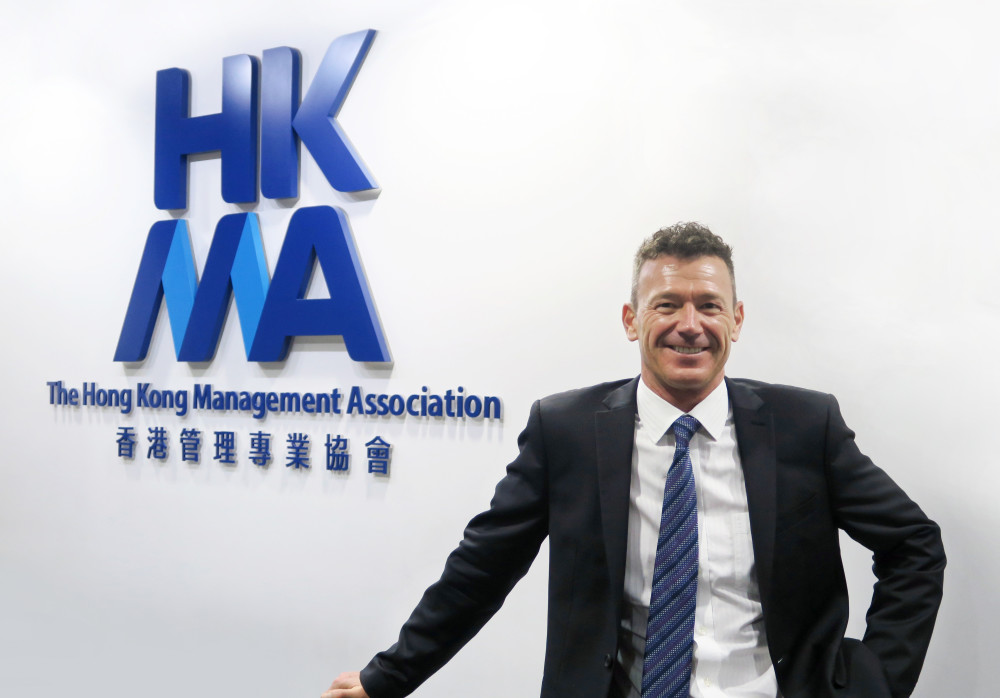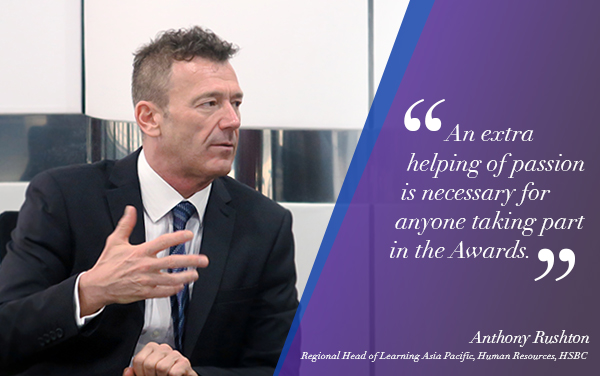

Rushton enthused, “This year we will be seeing a variety of different companies entering the Awards. Each year we are witnessing increased innovation and companies are evolving very positively.” His motivation to be the Chairman of the Organising Committee is the unbridled enthusiasm and commitment to human development. He added, “L&D is a very high profile part of HR, and as such it positively raises the profile of the HR function. People are putting their time and effort into developing something that actually works, and winning the Award offers both internal and external recognition.”
Another year, Another Awards
So what is new? Small and medium-sized enterprises (SMEs) will be able to get their foot in the door this year. Special complimentary invitations have been distributed to SMEs which employ not more than 100 persons in Hong Kong and are not subsidiaries of any group of companies or local offices of multinational companies in order to have a more diverse representation of businesses. The introduction of SMEs into the mix adds another flavour to the Awards. Smaller organisations tend to have less bureaucracy, allowing for a fast lane in L&D. These smaller organisations may lack funding compared to big businesses, however, what they lack in that aspect they make up for in resourcefulness, agility and speed to market. A tight budget can be a motivator to some, after all it is a business and there have to be some financial boundaries in place. The restriction of funds can be a stimulant to really think outside the box and do something that has never been done before.
Additionally, this year’s shortlisting interviews are now able to be conducted in Mandarin, which will benefit those organisations where Cantonese or English is not the primary language. This can help to enhance the diverse range of organisations joining the Awards, and is also a great boost for talented trainers entering the Awards.
The judging panel ebbs and flows and this year it is composed of HR professionals from a range of different industries. The judging criteria are reviewed every year to ensure that the evaluation is robust and maintains its objectivity. Judges take into account how effectively a programme has worked within a business and how well it has been utilised, how it has established direction and how it contributes to the success of an organisation through improving the performance of employees.
Innovate Innovate Innovate
Innovation is increasingly prevalent. Technology allows delivery of training to be not only more efficient but also more effective and also allows L&D to become more flexible and organisations need to stay at the cutting edge to transmit training solutions quickly and succinctly. In previous years, trainers who have really taken the initiative to develop innovative training programmes successfully engage different generations with technology.
A successful trainer
An outstanding trainer is able to solve a business issue by turning a problem into opportunity and then maximising the positive impact of the training programme. At the heart of most training programmes lies a need to develop the staff so that the organisation can continue to be competitive as a whole. Rushton noted, “An average trainer can be great at what they do, but a top trainer has business acumen and commercial awareness.” A training programme cannot just be something that is nice to have, it needs to have a business objective otherwise there is no goal. Secondly, Rushton cautioned that trainers are not entertainers and delivering a training programmes is not just a chance to perform, “You are a trainer, not an entertainer; the spotlight is on the delegates, not you.”
Advice to the candidates
Candidates should have a story to tell. Anthony notes that, “Your submission must really tell a story, and you must be able to articulate your training solution.” When taking the stage, a clear and sequential story should be told that explains the goal, the journey and the result so that the panel can get the idea within a short span of time.
In addition, management could involve and engage more throughout the award journey as a kind of support to the team. Rushton states, “Give them (employees) access to the right help and support to allow them to thrive.”
Individual Awards:
| Monday, 13 March | Official deadline for Individual Awards |
| Monday, 10 April | Submission of write-ups |
| Friday, 12 May | Presentation and Interview Session |
| Tuesday, 27 June | Trainer of the Year Final Judging |
Enquiries:
| Ms. Nichola Wong | Tel: 2826 0521
Email: [email protected] |
| Ms. Ellis Yeung | Tel: 2826 0532
Email: [email protected] |
Website: www.hkma.org.hk/trainingaward




